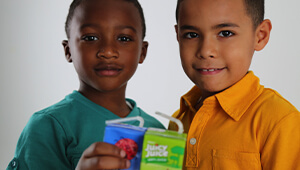Secret to Keeping Friends


“Let’s build this together.” – Toby, age 3, was worried. It was his first day of preschool, and although he had visited the school with his mom and checked out the cool toys, he had noticed that some of the other kids already knew each other. He began to worry: Would he be able to make any friends? His mother suggested that since he was so good at building with blocks, he could choose someone to help him create a castle. Toby took a deep breath and found the courage to ask another boy to join him. Friends from that moment on, the boys helped each other feel comfortable at school.
“I’d like to be included.” – Seven-year-old Jackie was the only girl in her class who did not live in the same neighborhood as the other girls. She was afraid she didn’t belong or wouldn’t be liked, and was especially lonely at lunch, when she sat all by herself. She told her mother she didn’t want to go to the mother-daughter picnic, but her mom said, “Let’s take a chance and go.” Beth, a fellow student, and her mom invited them to join in the fun, and all the mothers and girls became acquainted. Beth’s thoughtfulness gave Jackie the confidence to make friends and acquire a positive attitude about school.
“I made the right choice.” – Ten-year-old William was the best player on his soccer team, which he had joined with some good friends. But his team was not winning. When he was asked to fill a vacant spot on another team, William was tempted. That team had a 6-0 record. He tossed and turned all night thinking about what to do. When he mentioned it the next morning at breakfast, his dad asked one question: “What if you were in your friends’ shoes?” William knew then that he wanted to stand by his friends. Their gratitude convinced him he had made the right choice.
Building friendship skills – I am often asked how to help children make and keep friends. The most important thing we parents can do is treat our own family members and friends with the kindness and respect we want our children to acquire. Beyond that, we can listen supportively but also allow children to make mistakes. There is always some trial and error as children define themselves with their peers.
Children may practice relationship skills with their siblings or experiment at home with some behavior they have observed among their friends. Parents may be challenged to uphold the high standards they have set for their families in the face of peer pressure. Often, older siblings offer the most valuable and constructive feedback to the younger ones.
Frequently I ask a child to describe an ideal friend. Would this friend take turns easily, lose gracefully at games, be a good listener, and keep promises? What other qualities are important? Once your child has defined an ideal friend in terms of specific qualities, he can then cultivate those qualities as he interacts with peers to be a good friend.
Ask your child to do something thoughtful for another child each day, such as helping a child who has fallen down or inviting someone to share a snack or game. These small gestures can make another child’s day and inspire her to reciprocate. -Dr. Patti Zomber


